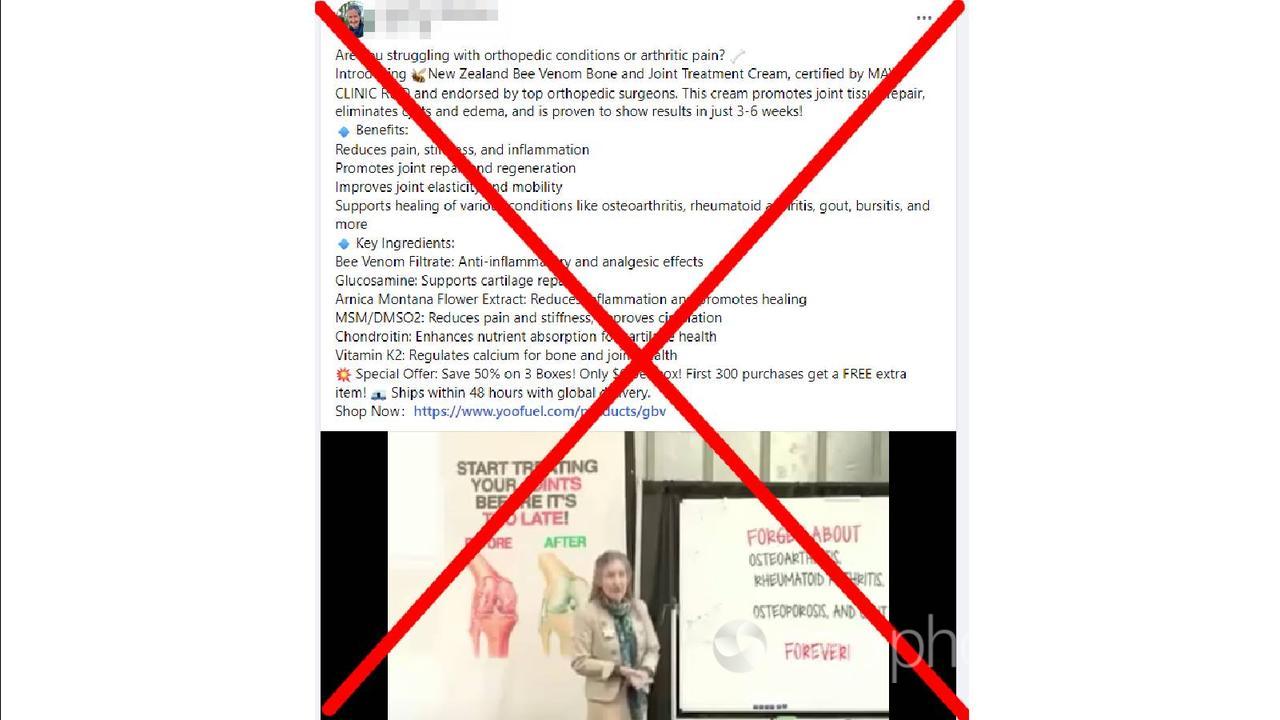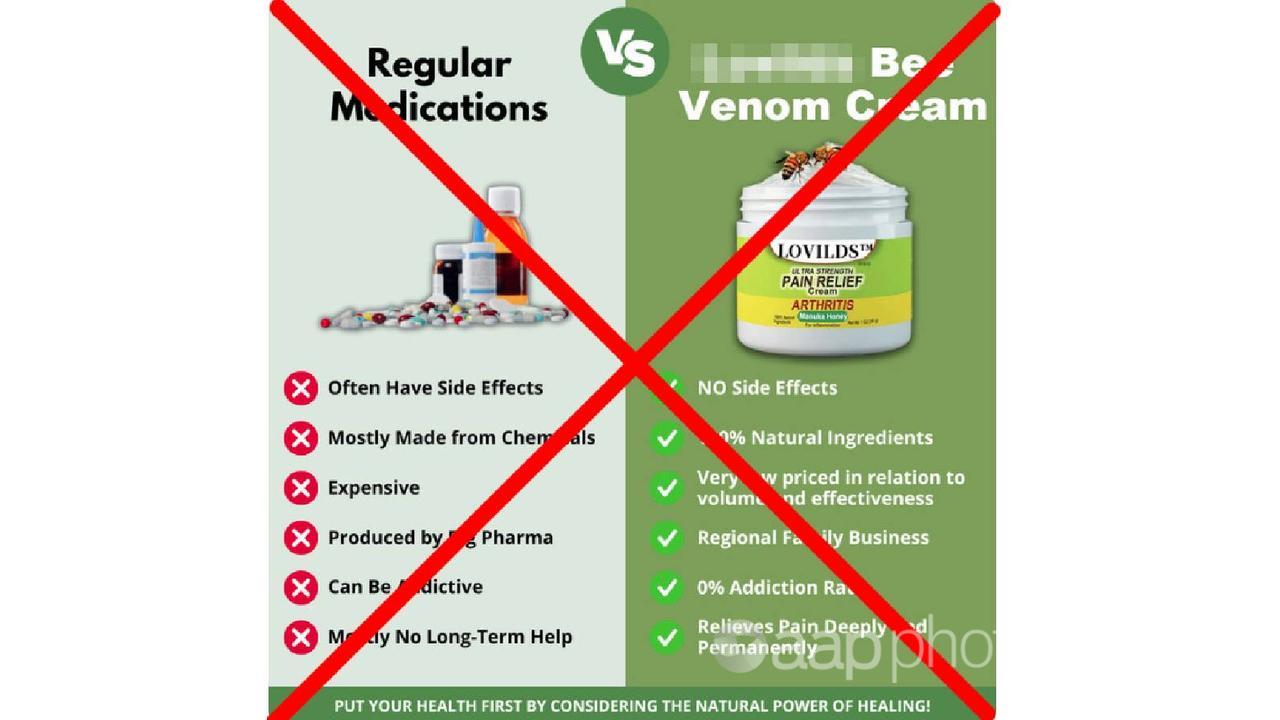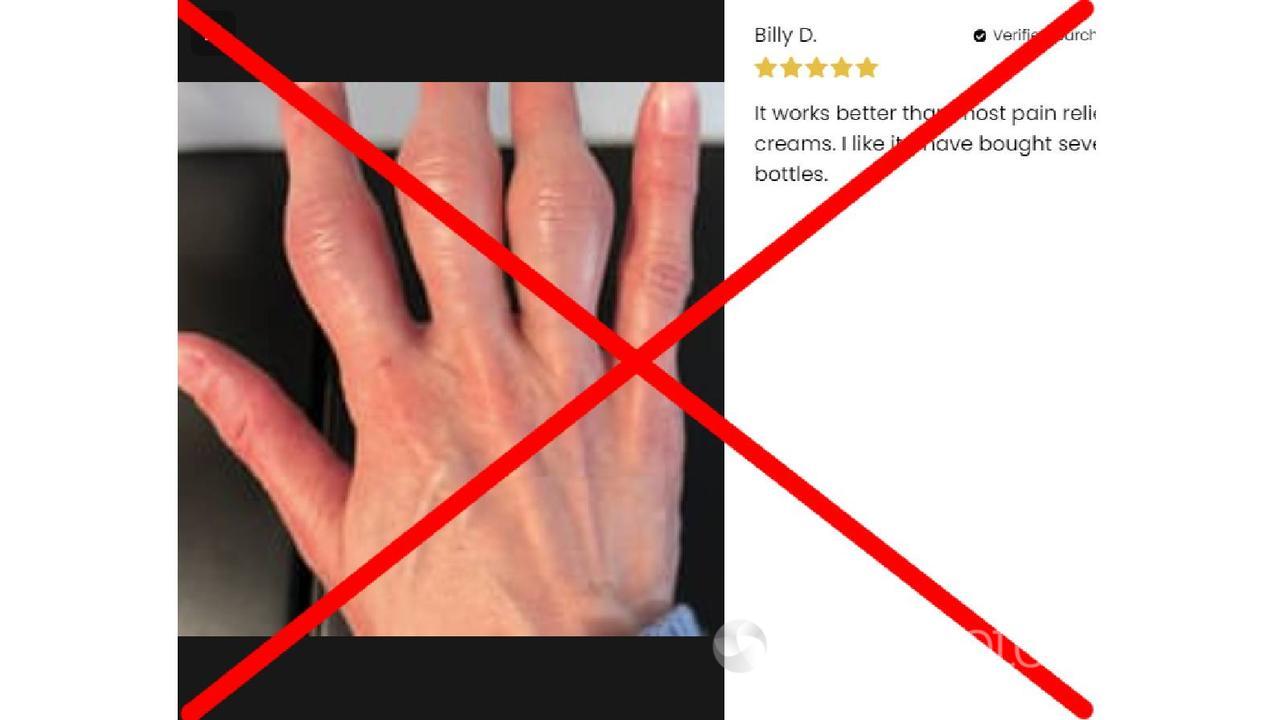AAP FACTCHECK – A cream claimed to treat arthritis and other joint conditions has been certified by US health care organisation the Mayo Clinic, a social media post claims.
This is false. The cream hasn’t been certified or endorsed by the clinic.
The claim appears in a Facebook post promoting a “bee venom cream, which it claims can treat orthopedic conditions and arthritic pain.
“Introducing New Zealand Bee Venom Bone and Joint Treatment Cream, certified by MAYO CLINIC R&D and endorsed by top orthopedic surgeons,” the post says.

A spokesperson for the Mayo Clinic told AAP FactCheck it has not endorsed or certified the product.
In comments below the post, the author also claims the cream was “developed by the top orthopedic team at NIH specifically for joint patients”.
A spokesperson for the National Institutes of Health (NIH), the primary US public health research agency, told AAP FactCheck it did not develop the product.
An NIH spokesperson said while there is a National Institute of Arthritis and Musculoskeletal and Skin Diseases (NIAMS) within the NIH, there is no “NIH orthopedic team”.
“NIAMS has an orthopedics team, but it was not involved with the development of this product,” the spokesperson said. “I am unable to locate any evidence that NIAMS or NIH was involved.”

The post also includes a video of natural health advocate Barbara O’Neill who appears to promote an unspecified cream to treat joint pain. The video, however, has been altered.
It includes clips of Ms O’Neill that have been taken from presentations on mental health and on gut health.
In these videos, Ms O’Neill does not promote any product for joint pain.
The voiceover in the purported bee venom video also does not appear to be that of Ms O’Neill as the person is speaking with a different accent.
The Facebook post links to a website selling the bee venom cream that also includes a number of fake reviews.

One review shows a picture of US celebrity wrestler Kevin Nash wearing a knee brace. Other images that purport to show people who have benefited from the cream have been taken from elsewhere online, including Reddit and a medical training website.
A number of other Facebook posts promote similar bee venom creams that also falsely claim to be endorsed or developed by respected medical institutions.
One post promoting a similar product claims it was “developed by the top orthopedic team at NIH”. Again, an NIH spokesperson confirmed NIH wasn’t involved.
Another claims the product is recommended by the New Zealand Orthopaedic Association. A spokesperson for the association said it “does not recommend this product and never has”.
The author of the post also claims the cream has been approved by New Zealand medicines regulator Medsafe. A representative for the regulator told AAP FactCheck this was incorrect.
The Verdict
False – The claim is inaccurate.
AAP FactCheck is an accredited member of the International Fact-Checking Network. To keep up with our latest fact checks, follow us on Facebook, Twitter and Instagram.
All information, text and images included on the AAP Websites is for personal use only and may not be re-written, copied, re-sold or re-distributed, framed, linked, shared onto social media or otherwise used whether for compensation of any kind or not, unless you have the prior written permission of AAP. For more information, please refer to our standard terms and conditions.


















